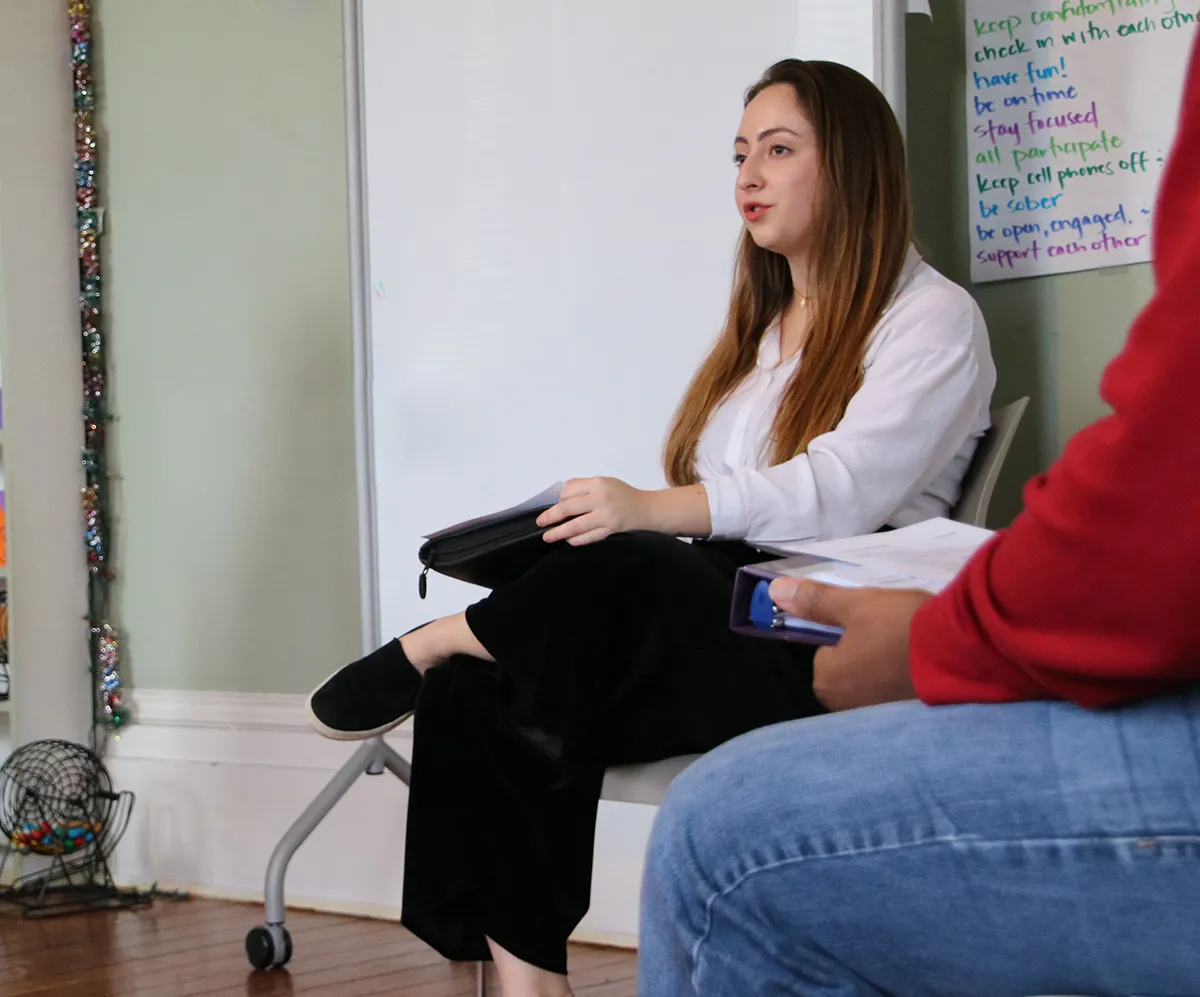
What are the ethical foundations of leading a meaningful life?
Graduate student Sabrina Leeds (M.A., Philosophy, ’19) used this question to guide a philosophy class she taught last fall at a local non-profit in the greater New Orleans area. For two months, Leeds led weekly conversations on ethics and philosophy at Project Lazarus, a transitional housing agency for people living with HIV/AIDS.
Project Lazarus opened its doors to New Orleans in 1985 and is an independent, non-denominational, and non-profit organization sponsored by the Archdiocese of New Orleans. More than 1,000 men and women diagnosed with HIV/AIDS have stayed at Project Lazarus under safe housing with special care ranging from wellness and holistic services, to an outpatient substance abuse program and aftercare to support each resident’s livelihood beyond Project Lazarus.
As Director of Programs Jessica Kinnison explains, the organization offers culturally responsive programming focused on the overall wellbeing of the resident. "The benefit to residents is immediate stabilization, improved health outcomes, a built-in support network, and assistance with long-term goal planning. The benefit to the community is an immediate reduction in the number of individuals who are homeless, who might be transmitting HIV without full knowledge of the virus and their health, are uninsured, or who might have untreated mental illness,” Kinnison said.
Leeds’ philosophy class was part of the organization’s Wellness University program, which provides courses to residents such as HIV 101, Financial Literacy, Life Skills, and elective courses such as creative writing, art therapy, psychology, and philosophy. For Leeds, this was a great opportunity to gain teaching experience while completing her master’s degree in the School of Liberal Arts’ Department of Philosophy’s 4+1 program, which allows undergraduate students who graduated with philosophy as a major to receive a master’s degree after one additional year. Through her studies, Leeds continues to explore the ethics of human beings’ relationships with technology through the lens of philosophy.
It helps our students and their residents understand that philosophy isn’t purely academic, and that many of the ideas we discuss in philosophy have a universal appeal.
“I didn’t finalize a specific structure for my class going into my first semester of teaching at Project Lazarus because I wanted the participants to really be a part of creating that structure,” Leeds explained. Because Leeds was working with community members who were curious about philosophy, rather than the traditional teacher-student relationship of a classroom, she let creativity and flexibility be her focus throughout the class. “In my classes, I tried to focus on fostering conversation rather than lecturing. Typically, I would present on a topic for about 20 minutes and the rest of the class would be discussion. We also did a lot of stimulating activities and a few thought experiments.” By merely prompting discussions, conversations would ensue that helped participants identify what their own personal core values are, and how these do or don’t fit into certain philosophical frameworks.
"This has been a great experience, especially given Sabrina’s interest in teaching and pursuing a doctorate,” said Kevin Morris, a School of Liberal Arts philosophy professor who serves as a facilitator between Project Lazarus and Tulane’s philosophy department. “It helps our students and their residents understand that philosophy isn’t purely academic, and that many of the ideas we discuss in philosophy have a universal appeal.”
Leeds turns to René Descartes’ approach to philosophy when reflecting on teaching in the community. “Descartes wanted to make philosophy more practical and useful for everyone,” Leeds explained, “and that continues to inspire me to make philosophy more accessible.” She and Morris, along with Chad Van Schoelandt, an assistant professor of philosophy at Tulane, received a grant from Tulane’s Center for Public Service at the close of the fall 2018 semester to expand Leeds’ teaching into research focused on effective pedagogy both in the particular context of Project Lazarus and its residents, as well as in similar contexts of community engagement. Leeds will continue teaching at Project Lazarus until she graduates in May 2019 and will also continue working on her research through the following year.
The Department of Philosophy’s 4+1 M.A. program helps students develop a deeper and more comprehensive understanding of both contemporary issues in philosophy as well as the history of philosophy, better preparing them to seek admission into a competitive Ph.D. program. The program allows Tulane undergraduates who graduate with a major in philosophy to receive an M.A. in philosophy after one additional year.

